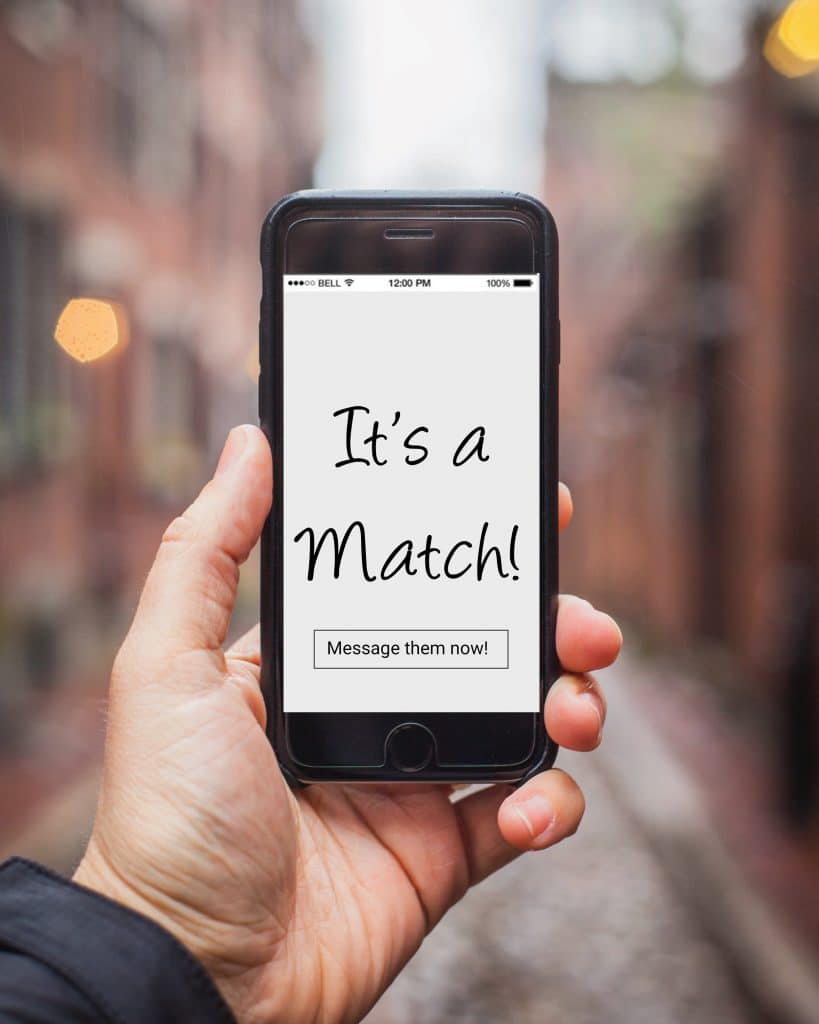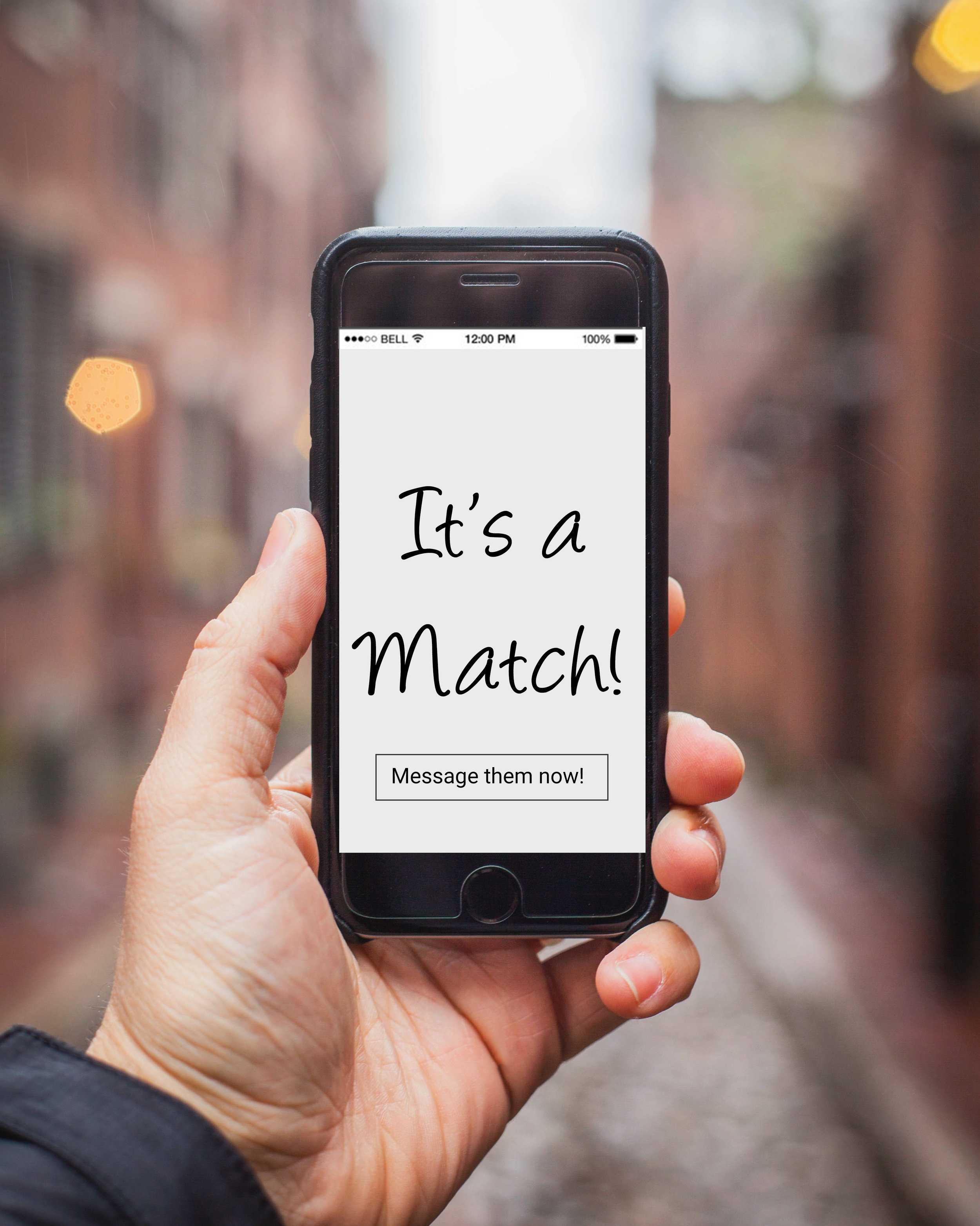
Avoiding the pitfalls of online dating
Graphic courtesy of Emily Artus
Emily Artus, Staff Writer for The Vision Magazine
The story is from the fall issue of our sister publication, The Vision Magazine. To read more stories from that issue, click here.
Once upon a time, college students connected with potential love interests by bumping into them in line for fried chicken in the Caf, by botching science experiments together in lab class or by spilling coffee on them at a Stud Coffeehouse.
But today’s college dating has leveled up from simple meetings in classes or the library.
Now, North Greenville University students also use online dating services like Tinder, Christian Mingle and Match to spark relationships.
These dating sites match users based on mutual attraction or similar interests, and most of the services offer easy-to-access apps for smartphones, allowing users to filter through potential love interests anywhere, anytime.
This convenience certainly attracts many of those looking for love, and college students, part of the most technologically literate generation, are not immune to the advantages of dating apps either.
Ellie Medford, a sophomore elementary education major, dabbled in online dating and even started a six-month relationship with someone she met on Tinder, a popular dating app. Though she was initially drawn to Tinder out of curiosity, Medford appreciated its straightforward aspect as she used the service more and more.
“If they’re online you know that they’re looking for something,” said Medford. “But in person, if you see a guy and you’re getting to know him, then how are you going to know if he’s interested or if he has a girlfriend or if he wants a relationship. There’s not a sign that says, ‘Hey, I’m single?’” she continued.
Because meeting on an internet website erases the ambiguity of an in- person meeting, online daters can feel more confident, without fear of embarrassment or rejection. “I like using Tinder because you never know if you’re actually getting rejected,” explained Medford. “You can swipe right for people, but you never know if they like you back until it matches. There’s no rejection; it’s understood if it’s mutual then he would message first or I would message first.”
However online dating is by no means, perfect.
Students should be wary of any initial, in-person meetings, and Sue Suomi, a personal counselor for NGU students, offers advice for ensuring a safe, first face- to-face encounter.
“If you’re going to meet, it should probably be somewhere in a very public place,” said Suomi. “Make sure that someone knows where you’re going and who you’re going with; you’re not just suddenly off by yourself with a stranger.”
Because online personas can be so convincing, Suomi warns students to remember the people they meet online may not seem like strangers, but, ultimately, they still are.
She also suggests students carefully re-read online conversations with their internet love interests and look for responses that appear disingenuous or raise red flags.
Because if an online conversation raises red flags, the in-person meeting probably won’t lower any—a sharply-learned lesson for Audrey Burget, a junior studio art major.
Burget, who used Match, Tinder and Plenty of Fish, agreed to meet a man she met online, even though his too-good-to- be-true, but seemingly-legitimate profile pictures raised some suspicion.
Aware of online dating’s dangers, Burget arranged her first meeting with the man on campus in a public area, but when he hopped out of his car, she realized those too-good-to-be-true pictures were exactly that.
The man, about 30 years old and not nearly as attractive as advertised, nervously grabbed her hand as the pair lapped the football complex, and Burget desperately wished for her hand back and for the situation to end.
But onward they walked, discussing—of all things—being safe while dating online and watching out for creeps.
Though the awkward conversation soon fizzled out, the uneasy pair continued to circle the fields, but Burget had a trick up her sleeve—or rather, in her pocket.
“I had my knife on me for protection in case things went south,” explained Burget. “I was just playing with it because he was holding my hand and I couldn’t pull away.”
Though she fiddled with her knife in one hand, her other was still clasped by the man she hardly knew, and when the date and the field laps finally ended, the man actually requested a second date with Burget.
With internet dating, situations like Burget’s are not out of the ordinary, and students should always practice extreme caution when meeting anyone they’ve found online.
“Anyone can hide their identity and who they are behind a computer screen,” explained Medford. “You don’t know what to expect going in, you don’t know if they’re lying, because anyone can say they’re a good guy or have good intentions.”
Students should research the people they connect with online before meeting them in person, and Burget suggests investigating social media accounts and image searching profile pictures for authenticity.
Finally, Suomi warns students to understand how online dating can be inherently misleading (at least at the beginning) because it removes the social factor, which is seeing someone in context with other people.
“Someone can be totally charming in an email, and yet you don’t know at all what they’re like in their life; you don’t know their character qualities,” explained Suomi. “It’s really hard to know that just from corresponding, but those are things you don’t get to see if you’re not interacting with other people.”
All in all, students who online date should remember to practice safety and caution, to do their research and to look for red flags in conversation and on social media.
If students are mindful and wary, online dating can be a convenient and interesting way to meet a potential love interest.
Or, it can at least give you some crazy stories.

